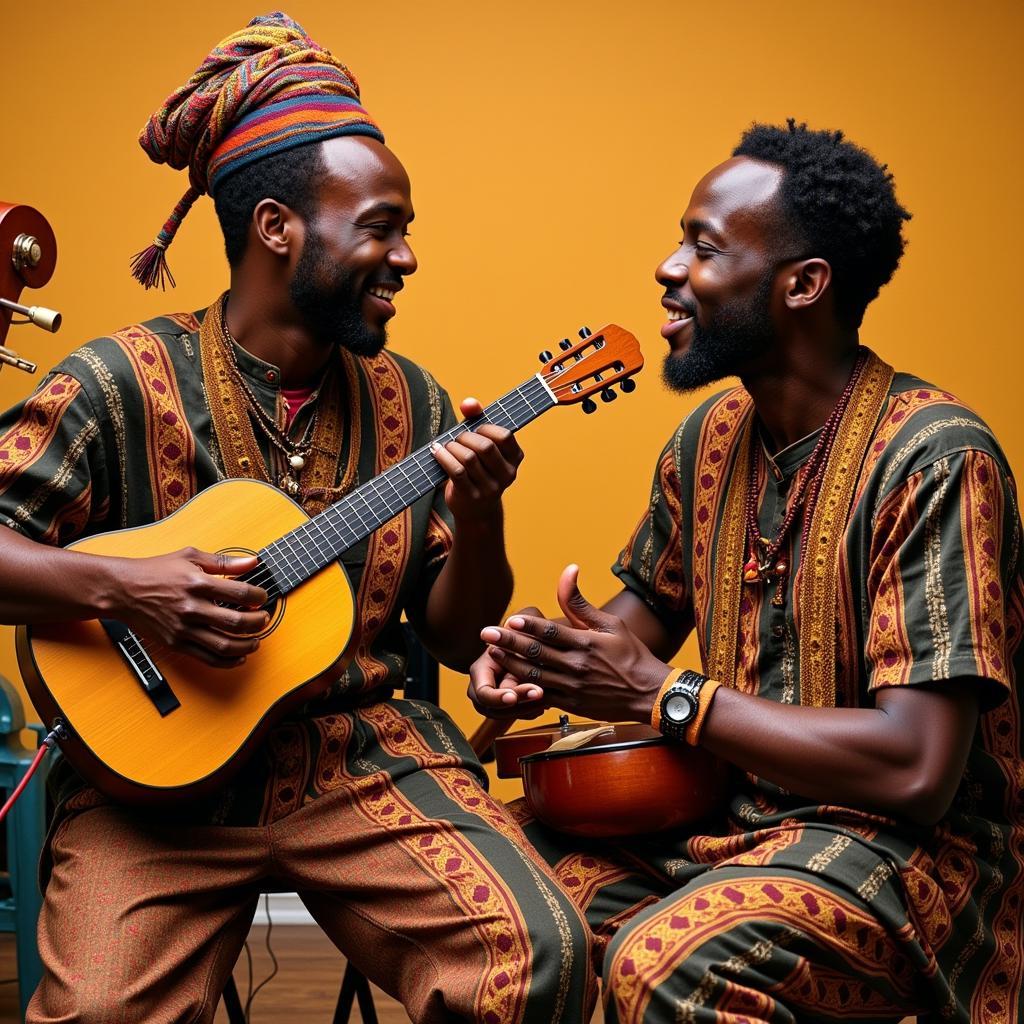Exploring the Rich Tapestry of African Culture Symbols
African Culture Symbols are a vibrant expression of the continent’s diverse heritage, beliefs, and traditions. From intricate patterns and powerful masks to majestic animals and sacred plants, these symbols hold deep meaning and offer a glimpse into the rich tapestry of African life. Understanding these symbols unlocks a deeper appreciation for the continent’s history, spirituality, and artistic expression. Let’s embark on a journey to uncover the significance of some of these captivating cultural emblems.
Unmasking the Power of African Symbols
African symbols often represent complex ideas and concepts, serving as a visual language that transcends linguistic barriers. They are integral to storytelling, rituals, and everyday life, connecting generations and reinforcing cultural identity. For instance, the Adinkra symbols of the Akan people of Ghana encapsulate profound philosophical principles, ethical values, and historical events. These symbols are more than just decorations; they are a powerful form of communication and a testament to the ingenuity and creativity of African cultures. You’ll find these symbols adorning everything from clothing and jewelry to architecture and pottery.
The use of symbols in African culture also extends to the realm of spirituality and religion. Many symbols represent deities, ancestral spirits, and the forces of nature. Masks, for example, are often used in ceremonial dances and rituals to connect with the spiritual world. Their elaborate designs and vibrant colors evoke a sense of awe and reverence.
Animals as Symbols: A Walk on the Wild Side
Animals play a significant role in African culture symbols, often representing specific qualities or characteristics. The lion, known as the king of the jungle, symbolizes strength, courage, and leadership. Elephants, with their imposing size and gentle nature, represent wisdom, patience, and longevity. The graceful antelope symbolizes beauty, grace, and femininity. These animals are not just part of the natural landscape; they are deeply woven into the cultural fabric of many African societies. For those interested in seeing these magnificent creatures in their natural habitat, checking out some African lion pictures can be a truly inspiring experience.
Even in everyday items, African symbolism thrives. African jewellery clip art often incorporates animal motifs, demonstrating the enduring influence of these symbols.
The Language of Color and Pattern
Colors and patterns also hold symbolic meaning in African cultures. For example, red can represent both life and death, while gold often symbolizes royalty and wealth. Intricate geometric patterns are common in textiles and other art forms, reflecting the creativity and artistic skill of African artisans. These patterns often tell stories, represent proverbs, or express spiritual beliefs. Even something as seemingly mundane as African curtains designs can be imbued with symbolic meaning through the use of specific colors and patterns.
FAQs about African Culture Symbols
- What are some common African symbols? Some common symbols include Adinkra symbols, animal motifs (like the lion and elephant), masks, and specific colors and patterns.
- How are African symbols used? They are used in storytelling, rituals, art, clothing, jewelry, and everyday objects.
- What is the significance of Adinkra symbols? Adinkra symbols represent philosophical principles, ethical values, and historical events of the Akan people of Ghana.
- Why are animals important in African culture symbols? Animals often represent specific qualities or characteristics, such as strength, wisdom, or beauty.
- What do colors symbolize in African culture? Colors like red and gold can represent life, death, royalty, and wealth, depending on the context.
- Where can I find more information about African culture symbols? Resources like museums, cultural centers, and online platforms dedicated to African art and culture offer valuable insights. You might even find resources focusing on specific aspects, like African babs, that delve into specific cultural nuances.
- How can I appreciate African culture symbols respectfully? Learn about their origins and meanings, and avoid appropriating them for commercial purposes without proper understanding and respect for the culture they represent.
Conclusion: A Journey Continues
African culture symbols are a testament to the richness and diversity of the continent’s heritage. From the powerful roar of the lion to the intricate patterns woven into textiles, these symbols offer a window into the beliefs, values, and artistic expressions of diverse African communities. By understanding these symbols, we can gain a deeper appreciation for the profound cultural tapestry that makes Africa so unique. For a more personal and intimate look at African Life, consider exploring resources like African Babs.
Remember, African culture symbols offer a wealth of insight into the soul of a continent and invite us to continue exploring the rich tapestry of human expression.
For further information or assistance, please contact us at +255768904061, [email protected] or visit us at Mbarali DC Mawindi, Kangaga, Tanzania. Our customer service team is available 24/7.



